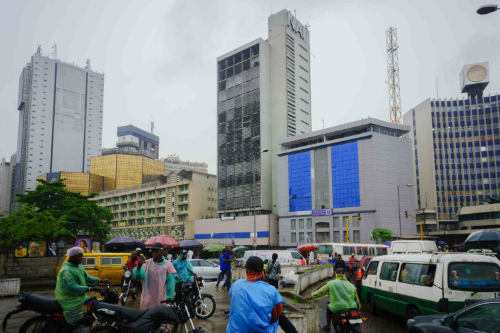Nigerian Inflation Falls Below 20% for First Time in Three Years

TLDR
- Nigeria’s annual inflation fell to 18% in September, its lowest level in three years, strengthening expectations that the Central Bank of Nigeria (CBN) may deliver another interest-rate cut
- The National Bureau of Statistics said inflation slowed from 20.1% in August, undershooting economists’ median forecast of 19%
- Last month, the Monetary Policy Committee cut the benchmark rate for the first time in five years, lowering it by 50 basis points to 27%
Nigeria’s annual inflation fell to 18% in September, its lowest level in three years, strengthening expectations that the Central Bank of Nigeria (CBN) may deliver another interest-rate cut at its November meeting.
The National Bureau of Statistics said inflation slowed from 20.1% in August, undershooting economists’ median forecast of 19%. Month-on-month, prices rose 0.7%. The decline marks the sixth straight month of disinflation — a trend driven by stable foreign-exchange rates, increased crude oil output, and lower prices of key food staples as the harvest season begins.
Food inflation eased sharply to 16.9% from 21.9%, while core inflation moderated to 19.5% from 20.3%. The naira remained broadly stable through September, helped by higher oil receipts and liquidity improvements in the interbank FX market.
The moderation in prices supports the CBN’s view that inflationary pressures are easing. Last month, the Monetary Policy Committee cut the benchmark rate for the first time in five years, lowering it by 50 basis points to 27%. Governor Olayemi Cardoso said he expects continued disinflation in the coming months, citing “lagged effects of previous rate hikes” and “sustained currency stability.”
Still, short-term risks linger. A late-September oil workers’ strike caused temporary production losses, while operational disruptions at the Dangote refinery led to fuel shortages that may affect October data.
The MPC meets again on November 25, with investors watching for another symbolic cut that could reinforce the administration’s drive to reduce borrowing costs and stimulate growth ahead of 2026 budget discussions.
Daba is Africa's leading investment platform for private and public markets. Download here
Key Takeaways
Nigeria’s inflation rate dropping below 20% marks a symbolic turning point for Africa’s largest economy. If sustained, it could unlock a monetary easing cycle after years of aggressive tightening. Falling food prices, stable FX, and stronger oil output have bolstered macro stability — a relief for households and businesses alike. Yet upside risks remain from energy bottlenecks and fiscal pressures. With inflation back within sight of the CBN’s medium-term target, policymakers now face the challenge of balancing growth recovery with price discipline, as investors anticipate whether November’s MPC meeting cements the start of a new monetary policy era for Nigeria.

Next Frontier
Stay up to date on major news and events in African markets. Delivered weekly.
Pulse54
UDeep-dives into what’s old and new in Africa’s investment landscape. Delivered twice monthly.
Events
Sign up to stay informed about our regular webinars, product launches, and exhibitions.




